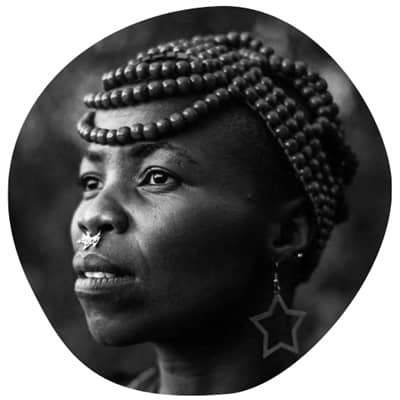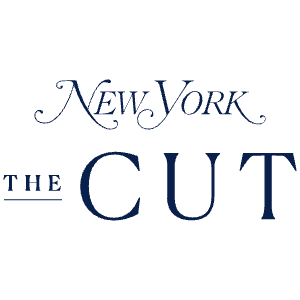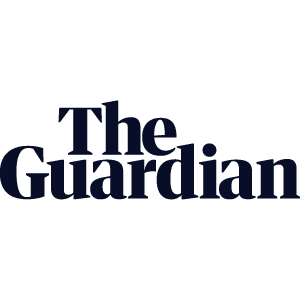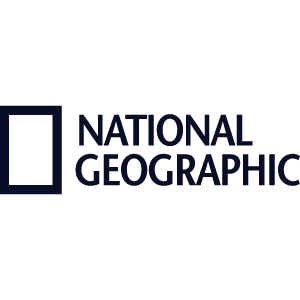Our Mission
Storytelling for Nature Preservation
We are a community of scientists, storytellers, journalists and filmmakers who are dedicated to the wild, and specifically the Great African Seaforest.
We advocate for the healing of our planet by connecting people to nature through our science-based immersive storytelling.
“I need no convincing that an ecosystem such as this is of inestimable value & must be protected.”
SIR DAVID ATTENBOROUGH
Our Projects
Inspired by Nature
Supported by Science
Guided by Indigenous Wisdom
All our work is based on our connection to the Great African Seaforest. This underwater forest is a deep source of inspiration for our minds, souls and hearts. By sharing these experiences with the world, we hope to inspire a global movement of nature connection and more stories about the intrinsic relationship between humans and the living planet.
Films
World-class films are an integral part of our content. We tell immersive, personal stories about people and nature, to a global audience. Our films include the Netflix Original My Octopus Teacher; Older than Trees – a film about the future of sharks and rays, and our newest feature documentary Pangolin: Kulu’s Journey about a special baby pangolin.
Books
Our Sea Change book has been republished as Underwater Wild, and we released a children’s book, A Journey Under the Sea. Craig Foster’s new book Amphibious Soul about “Finding the wild in a tame world,” based on his own ‘rewilding,’ is available to purchase.
Exhibitions
Sea Change Project collaborates on multimedia exhibitions that convey the story of our interconnectedness with the natural world. Showcasing the latest research on the origins of Homo sapiens while raising awareness for the Great African Seaforest and kelp forests worldwide. Visit the Origins exhibit at Cape Point, De Hoop Nature Reserve and most recently at Stillbaai.
Education
Having a connection to nature is everyone’s birthright. It is often said we must leave a better planet to our future children but we need to also leave better children to become custodians of this living world and for that we need nature education. We are committed to sharing our love and knowledge of the Great African Seaforest, and nature as a whole, with as many people as we can reach to inspire a sea-change.
Science
Science guides all our work at Sea Change. We conduct biodiversity research and collaborate with academic institutions to uncover the secrets of the Great African Seaforest. Through our 1001 Seaforest Species project, you’ll encounter the extraordinary creatures of this underwater ecosystem and discover their remarkable stories. This project blends science, underwater tracking, and storytelling to illuminate the hidden world of the Seaforest.
Podcasts
Our podcast series Back to the Water, hosted by Zolani Mahola and Pippa Ehrlich, asks what it means to be disconnected from nature and one’s culture – and what happens when you reconnect. The first episode of Back to the Water, “More Than One Octopus” premiered at Tribeca Festival, winning in its category, and available on all podcast platforms.
PATRON & AMBASSADOR

Zolani Mahola
Vocalist, Actress & Nature Activist

Yo-Yo Ma
Cellist
YOU CAN MAKE A DIFFERENCE
Preserve the Great African Seaforest
Kelp forests are highly productive near-shore marine ecosystems. They are biodiversity hotspots, sequester carbon, release oxygen and slow coastal erosion. They are found on 30% of our world’s coastlines and are one of the most vulnerable marine ecosystems to the climate emergency.
Our first goal was to make the Great African Seaforest a global icon and bring attention to the world’s kelp forests. With your help and support following the success of My Octopus Teacher, we achieved this.
In this time of environmental upheaval and biodiversity loss, we need to keep ensuring the long-term preservation of the Great African Seaforest. You can help by continuing to support our work in reminding people of their intrinsic connection with nature.
WHAT YOU CAN DO
Take Action
Lack of knowledge and awareness, and our human impact on this planet, are at the root of all threats to the Great African Seaforest and our global kelp forests. We are in the ocean every day, learning the secrets of the seaforest and finding stories that inspire people to reconnect with nature.
We hope our stories, knowledge and love of this environment can remind us that we are part of the natural world and motivate action that allows the living planet to thrive and regenerate itself.
To help us ensure the long-term preservation of the Great African Seaforest and to raise awareness for kelp forests globally, please watch, donate and share.
Social
Without tracking, Craig wouldn’t have made such a deep connection with his mentor in My Octopus Teacher. This ancient language opens up a whole world of stories, allowing us to piece together puzzles and embed ourselves in nature. And a puddle on land told of a universe of life.
Images: Craig Foster, A Rodrigo / @pexels, Nothing Ahead / @pexels
#tracking #seachangeproject #wild #natureconnection #myoctopusteacher

We all could use some good news right now — here’s a roundup of inspiring stories from around the country.
Image 1: Damian Patkowski / @unsplash
Image 2: Supplied by @2oceansaquarium
Image 3: Supplied by @lovegreencommunications
Image 4: Geranimo / @unsplash
@nuwejaarswetlands_sma #goodnews #southafrica #seachangeproject #natureconnection #biodiversity

#0041 Reticulated kelp-louse – Paridotea reticulata
Adaptative mechanisms take various forms in marine animals, and this large isopod has been specially equipped to ward off chemical warfare. The gut of these green- to brown-hued louses contain surfactants (think the compound in washing detergent that stirs up activity on the surface you are cleaning to help trap dirt and remove it from the surface), which enables them to stay unaffected by chemicals released by its staple food: kelp. Added to this is a chitinous lining, a semi-permeable layer that prevents the kelp chemicals from penetrating the body. A less complicated food source is the occasional dead fish, scavenged from gill nets. Reticulated kelp-louses have several smaller cousins in the region and are distinguished by pointed tips of the posterior body section, which also provide protection.
@saveourseasfoundation #saveourseasfoundation #1001seaforestspecies #1001species #1001speciesproject

In this age of ‘the extinction of experience’, where our lives are mediated through screens and phones, being with nature reminds us of our connectedness and how our planet provides everything we need.
#helenscales #natureconnection #ocean #extinctionofexperience

#0040 Scaly horse-mussel – Atrina squamifera
Out of thread for your holiday sewing project? Like their Mediterranean cousins, perhaps the Scaly horse-mussel could help. Those dark, hair-like ‘tails’ seen in the second image are called byssal threads, and their job is to anchor the shell to small gravel and objects in the sediment and create a sand-anchorage. Greek mythology tells us that the threads of horse-mussles were woven into the hardy cloth that served as Jason’s golden fleece – which is just incredible and symbolises royal authority, power and divine blessings. Large, fragile and golden-brown, our local Scaly horse-mussel has external scale-like cusps that run longitudinally down the shell, which is hinged by an elongate ligament. They live partially buried in sand, their large and gaping posterior poking out into the water, which provides food particles that are filtered through enlarged sieve-like gills. This striking species is generous with its body: its shell is often packed with fouling organisms, which use it as a convenient ‘island’ and serves as a home for many marine species. Horse mussels are globally threatened and we are lucky in South Africa to still have healthy populations!
@saveourseasfoundation #1001species #1001speciesproject #seachangeproject #greatafricanseaforest #marinebiology #horsemussel #biodiversity

A new year. New dives in the Great African Seaforest. Renewed commitment to getting the world’s kelp forests on the map, so they can be understood and preserved. New plans. New projects. As always, new stories to touch hearts and spark new ways of doing things. 🐙
#seachangeproject #greatafricanseaforest #natureconnection #earth #kelpforest #biodiversity

#0039 Pink meanie – Drymonema sp.
Observing a rare animal in the seaforest gets us crazy-excited. The Pink meanie, which belongs to a small and recently created family that contains just a single genus, is one such species. This beautiful, rarely seen jellyfish is a rosy-pink hue and has a distinct fairly flat umbrella, numerous layers of petticoat-like oral arms, and long trailing tentacles. But don’t be fooled by all that prettiness. As the name suggests, Pink meanies voraciously prey on other jellyfish (see image 2), which is thought to keep populations in check. Not much is known about this species that is still scientifically undescribed, and we’re always on the lookout for them as they move through the seaforest, the flattish disc alternating between convex and concave as they pulse in the kelp.
@saveourseasfoundation #seachangeproject #1001species #1001speciesproject #marinebiology #greatafricanseaforest #jellyfish #pinkmeanie

#0038 Shaggy sponge crab – Dromidia hirsutissima
Like a holidaying school pupil before the obligatory term-time trim, these small crabs are a shaggy sight, their coiffure made up of long dense fibrous brown, grey or yellow hairs. And, as if that’s not enough coverage, they also often carry a cloak of other ocean dwellers – sponges, ascidians and seaweeds – which protects them (often through added chemical defence) and provides nifty camouflage. One of six species in the endemic genus, five are found in False Bay and the Great African Seaforest. While they are usually nocturnal, Shaggy sponge crabs sometimes venture out during the day, relying on their camouflage to move around undetected.
@saveourseasfoundation #seachangeproject #1001species #1001speciesproject #marinebiology #crab #greatafricanseaforest

Lunchtime in the Great African Seaforest … this octopus was seen tucking into a large Trough shell, before shooting away into the kelp, perhaps in search of dessert.
#myoctopusteacher #octopus #greatafricanseaforest #kelpforest #seachangeproject

#0037 Strap caulerpa – Caulerpa filiformis
They might look like seagrass and sway like seagrass, but these dark-green ‘meadows’ are actually a type of algae. With strap-like fronds that emerge from a smooth white stolon – a creeping horizontal stem – Strap caulerpa grow in the sand with root-like rhizoid anchors that attach to buried rocks in intertidal pools and shallow reefs. They form ecologically important habitat and locally enhance biodiversity, especially of gastropod species. An unusual distinction is that the frond of the Strap caulerpa is one enormous cell containing many nuclei. An easy way to understand this is by imagining a house: usually, it’s divided into lots of little rooms (like cells), each with its own light source. But here, the house is one huge open hall, and instead of one light bulb , there are many lamps around the hall. This species is sometimes confused with seagrass, which is a flowering plant, not an alga. However, like seagrass, it relies on photosynthesis and forms these dense beds that can appear almost luminous in bright sunlight.
@saveourseasfoundation #1001species #1001speciesproject #strapcaulerpa #seachangeproject #marinebiology

It`s not often the Sea Change team gets to dive together. Each of us is juggling projects, engagements, research, outreach, filming, editing, writing, recording, conferencing! So this day last week was a treat - exploring the seaforest together, our bare skin a conduit for connection and a sense of wonder.
#seachangeproject #greatafricanseaforest #natureconnection

#0036 Pink-edge bluebottle – Physalia megalista
Many of us are familiar with blue-hued bluebottles, known for their painful sting. But did you know there are not one but at least two species in the Great African Seaforest, including this pink-tinged one? While its trim colour differentiates it from the familiar blue P. utriculus, other distinguishing features include a strongly crimped sail (the inflated float one sees at the surface) and considerably longer feeding tentacles. Bluebottles are colonial hydrozoans, with each colony male or female. They reproduce by shedding sperm and eggs into the water, forming larvae that drift in the water until a float-forming zooid develops, lifting the colony to the surface. Those formidable tentacles aren’t for malice but for survival: they paralyse small fish and crustaceans, reel them in, and deliver them to feeding zooids for digestion and nutrient sharing across the colony.
#1001project #1001seaforestspecies #1001species @saveourseasfoundation #taxonomy #marinebiology #pinkedgebluebottle #bluebottle






